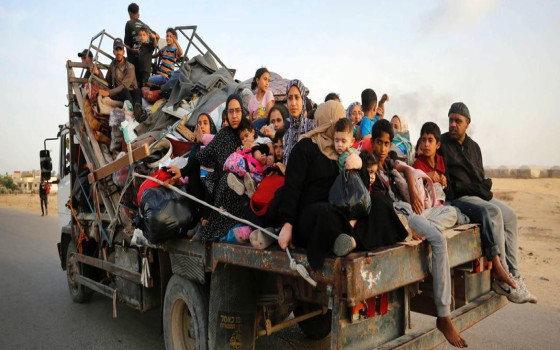
“Bitter” investment opportunities and the impact of humanitarian crises on sexual and reproductive rights in the Arab region

- Europe and Arabs
- Friday , 12 July 2024 11:6 AM GMT
New York: Europe and the Arabs
UNFPA Regional Director for the Arab States, Laila Bakr, expressed concern about the slowdown - and at times reversal - in progress made in the field of sexual and reproductive health and rights.
Bakr's statements came in an exclusive interview with United Nations News coinciding with the regional launch of the annual report on the state of world population 2024, which is titled "Destinies woven with threads of hope: sexual and reproductive health and rights, eliminating inequalities in sexual and reproductive health and rights."
The Regional Director of the United Nations Population Fund in the Arab States region pointed to the impact of humanitarian crises on sexual and reproductive rights and health, as “investments collapse” in this field as a result of people’s inability to access services, the collapse of health systems and roads, and difficulties in access, “and even sometimes, targeting... Those working in the health and rescue sectors were killed, as we saw in Gaza recently.”
But she pointed to a positive side to these crises, which she described as “a bitter investment opportunity,” adding that during crises it is possible to reach people who were marginalized, “and we can cover some topics such as violence against women more easily because there is an urgent need to reach people who are in crisis.” And preserve humanity.
Change the equation
The report indicated that the Arab region has the lowest rate of women’s economic participation in the world at only 26 percent.
Commenting on this, Bakr drew attention to the difficulties facing women in Arab countries due to society’s view and some customs and traditions, stressing that “in order for us to change this equation and have a just society, there must be a change in point of view regarding these traditions and customs.”
She also pointed out that the lack of balance between the patriarchal system (the system of male control) and the development that the world is witnessing in terms of technology and human rights, leads to the creation of a type of discrimination against women and girls, in addition to the discrimination that results from humanitarian crises and forced displacement.












No Comments Found